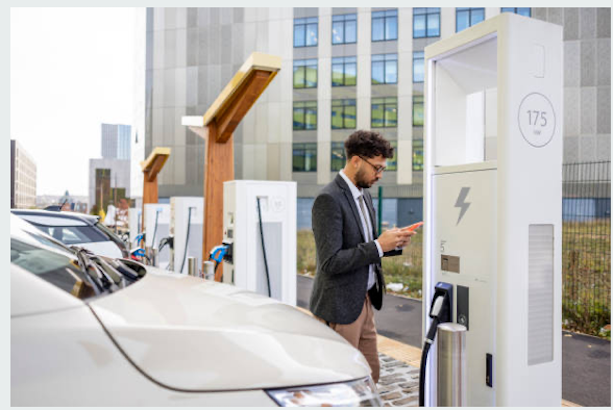Are Electric Vehicles Really Less Expensive to Own than Gas Powered Cars?
- Mark Willis
- Oct 4, 2024
- 3 min read
Updated: Oct 4, 2024

Electric vehicles (EVs) have been praised as the future of transportation, with promises of lower operational costs, environmental benefits, and cutting-edge technology. But as with any significant purchase, one major question persists: Are electric vehicles truly less expensive to own than traditional gas-powered cars?
At EV Fast, we specialize in providing efficient EV charging solutions, but we also understand that the decision to transition to an electric vehicle involves weighing the long-term financial benefits. In this blog, we break down the key factors that contribute to the total cost of ownership for EVs versus gas-powered cars to help you make an informed choice.
1. Initial Purchase Price
While it's true that the upfront cost of electric vehicles has historically been higher than that of comparable gas-powered cars, this gap has been narrowing. Many manufacturers now offer affordable electric options, and tax credits, rebates, and state-specific incentives can further reduce the sticker price. These savings can be significant, depending on where you live.
EV Fast encourages potential EV owners to explore available government incentives to reduce their initial purchase cost. Combining these with affordable charging solutions can make owning an EV much more cost-effective in the long run.
2. Fuel Costs
One of the most substantial cost advantages of EVs is the reduction in fuel costs. Electricity is typically much cheaper than gasoline on a per-mile basis. According to studies, the average cost to charge an electric vehicle is around 60% less than the equivalent amount spent on gas.
With EV Fast charging stations, both public and private users benefit from fast, efficient, and affordable charging solutions. Charging an EV at home or at one of our fast chargers significantly reduces ongoing fuel costs compared to filling up at the pump.
3. Maintenance Costs
Electric vehicles have far fewer moving parts than gas-powered cars. There are no oil changes, fewer components to break or wear out, and less routine maintenance required overall. EVs are powered by electric motors that require minimal upkeep, meaning fewer trips to the mechanic. Over time, this can lead to substantial savings, especially as gas-powered vehicles age and their maintenance costs increase.
At EV Fast, we also provide ongoing support for businesses and property owners who install EV chargers, ensuring that your charging infrastructure is well-maintained and operating smoothly—adding even more reliability to your electric vehicle experience.
4. Resale Value
Resale value is another area where electric vehicles are beginning to shine. As battery technology improves and range anxiety diminishes, EVs are holding their value better than ever before. Moreover, with growing demand for electric vehicles, those considering selling or trading in their EVs are finding stronger markets.
The sustainability factor and the long-term savings are appealing to buyers, which, combined with the growth of EV charging infrastructure through companies like EV Fast, gives used electric vehicles an edge in resale value.
5. Environmental and Social Impact
Although not directly tied to ownership costs, it’s worth mentioning the environmental benefits of switching to electric vehicles. EVs produce zero tailpipe emissions, meaning they help reduce the overall carbon footprint. Governments and businesses alike are incentivizing drivers to switch to electric, offering rebates and grants that can indirectly lower the total cost of ownership.
At EV Fast, we’re committed to supporting a cleaner future by providing accessible and efficient EV charging infrastructure, making it easier for individuals and businesses to adopt electric vehicles.
6. EVs are a Long-Term Investment
When considering the total cost of ownership, electric vehicles are often less expensive to own and operate than gas-powered cars. Lower fuel costs, reduced maintenance, and available incentives make EVs an attractive option for both individual and fleet owners. Companies like EV Fast are helping drive this transition by providing the essential charging infrastructure needed to support widespread EV adoption.
For businesses and property owners, investing in EV Fast’s charging solutions not only helps lower operational costs but also enhances the value of properties by making them EV-friendly. The future of transportation is electric, and the financial benefits are increasingly clear.
Conclusion: The Real Cost of EV Ownership
So, are electric vehicles really less expensive to own than gas-powered cars? The answer is increasingly "yes." With lower fuel costs, reduced maintenance expenses, potential tax incentives, and rising resale values, the total cost of owning an EV is often lower than that of a traditional gasoline-powered vehicle—especially when considering long-term savings.
If you’re considering switching to an electric vehicle, now might be the best time to make the leap. And if you're a business or property owner, EV Fast is ready to help you install the necessary charging infrastructure to power that future.
Contact EV Fast today to see how we can help you power the future of transportation.


Comments